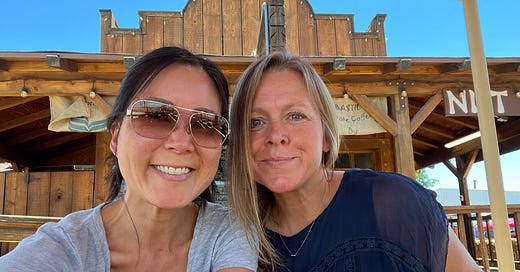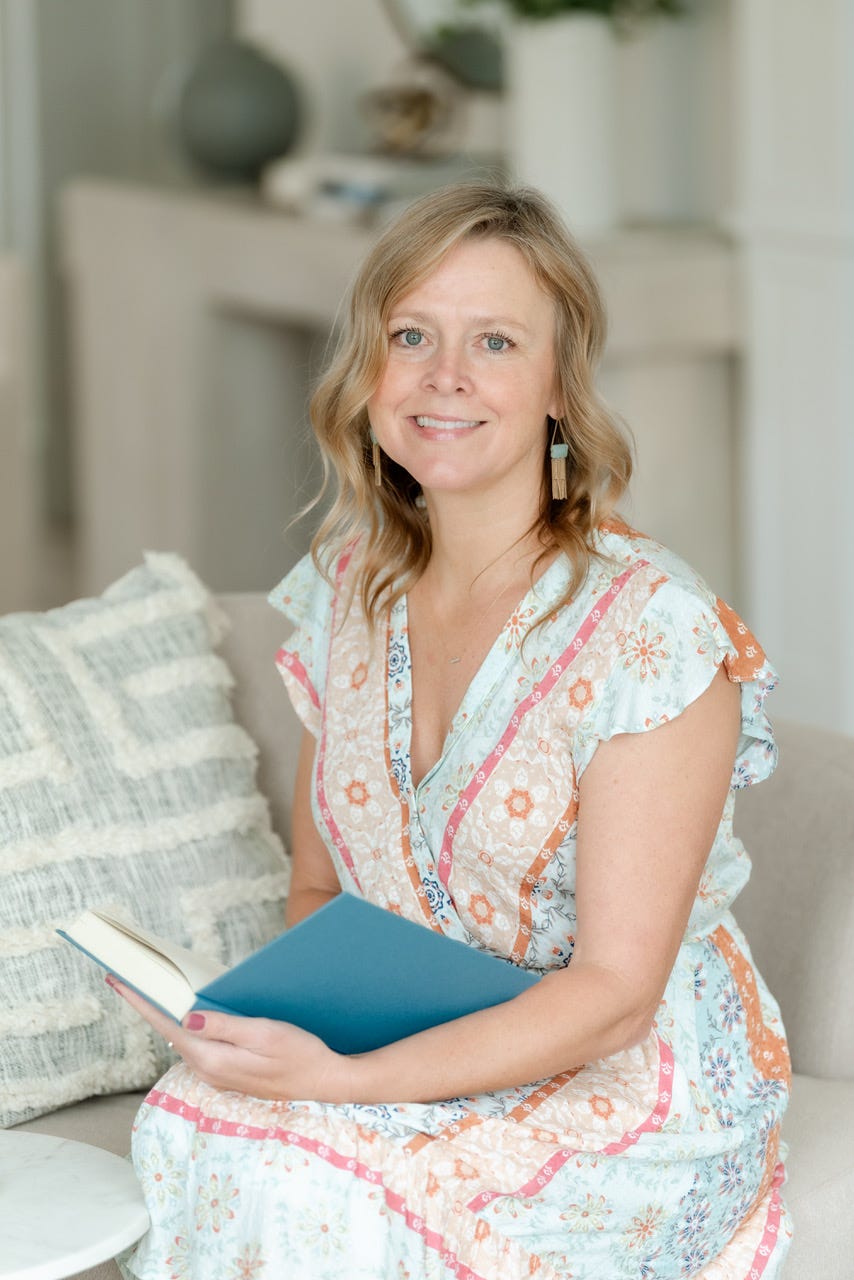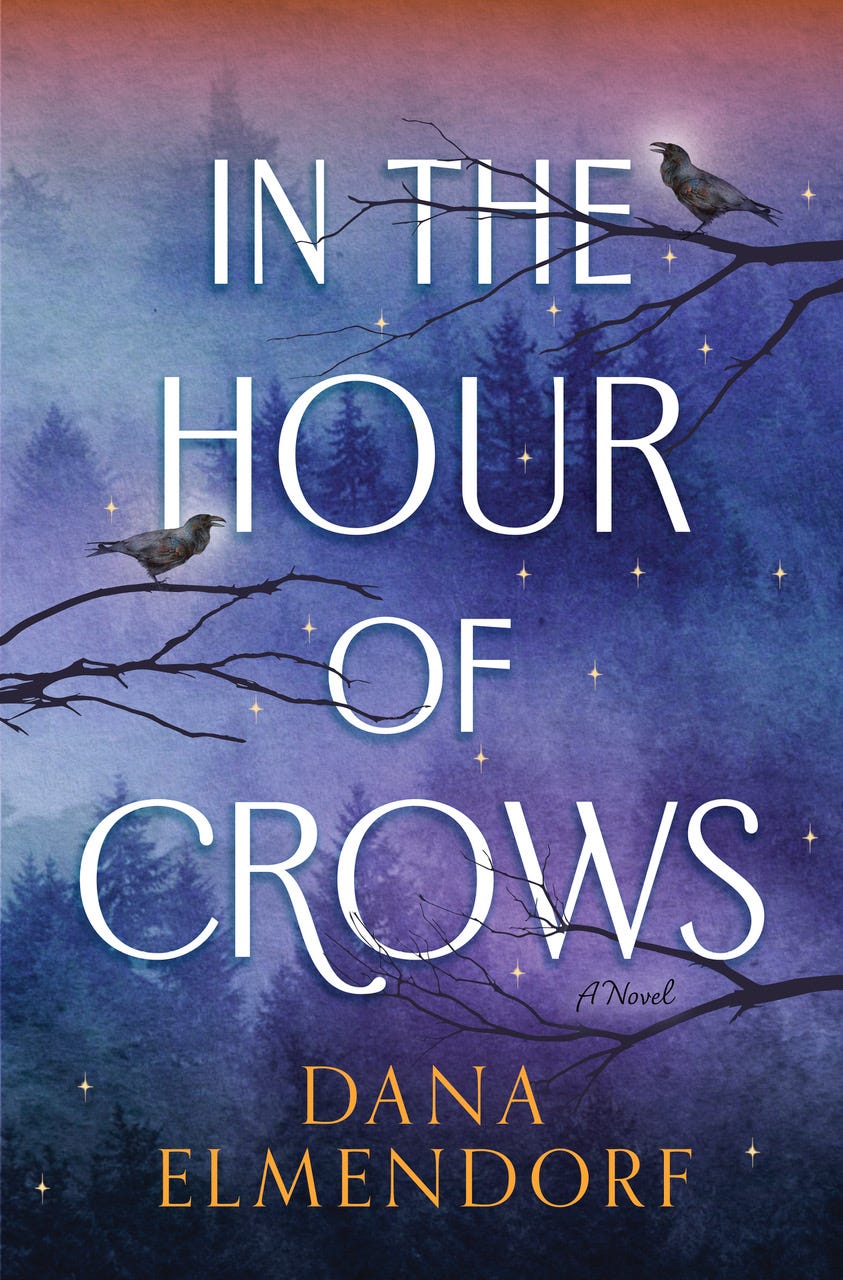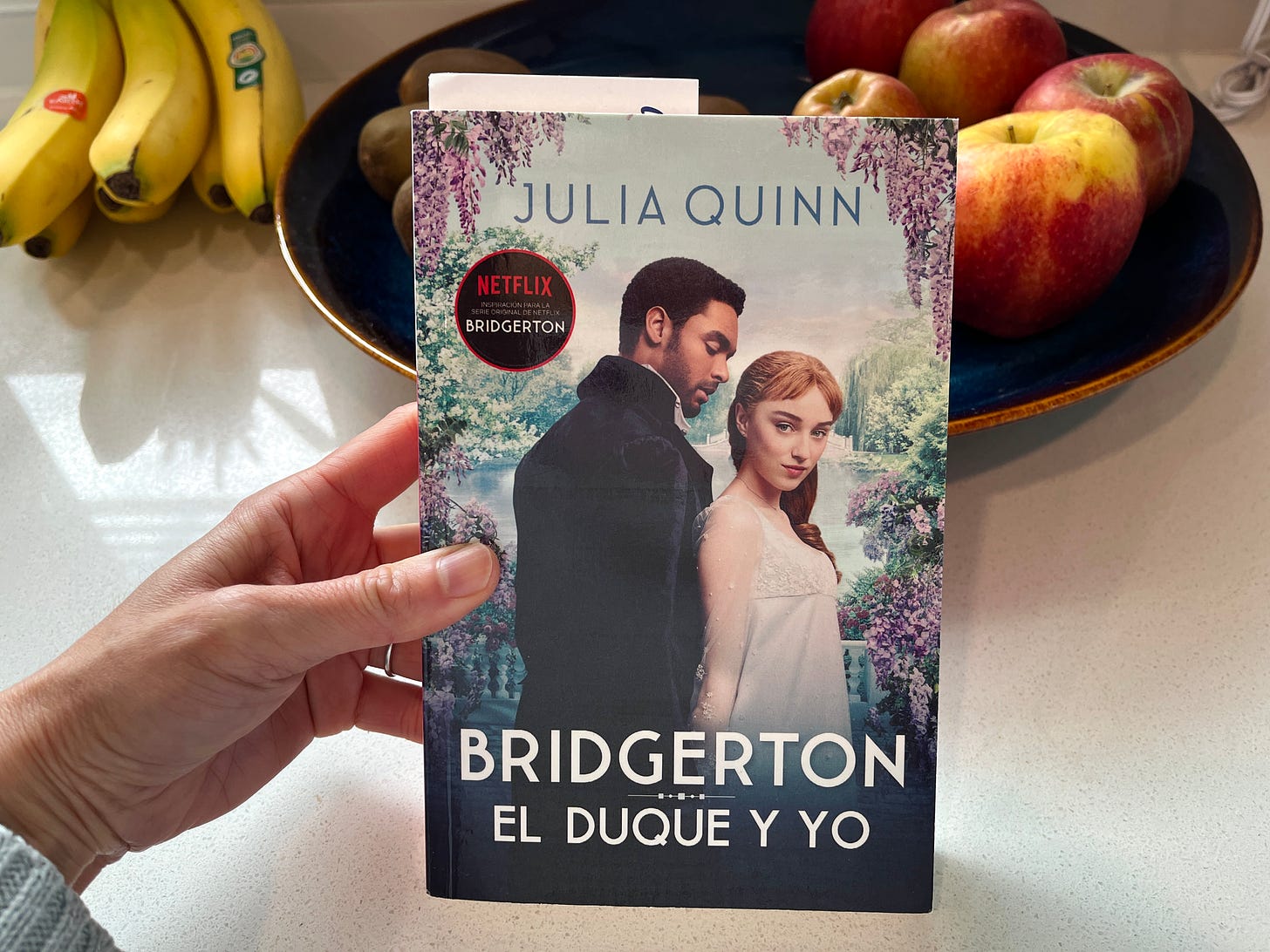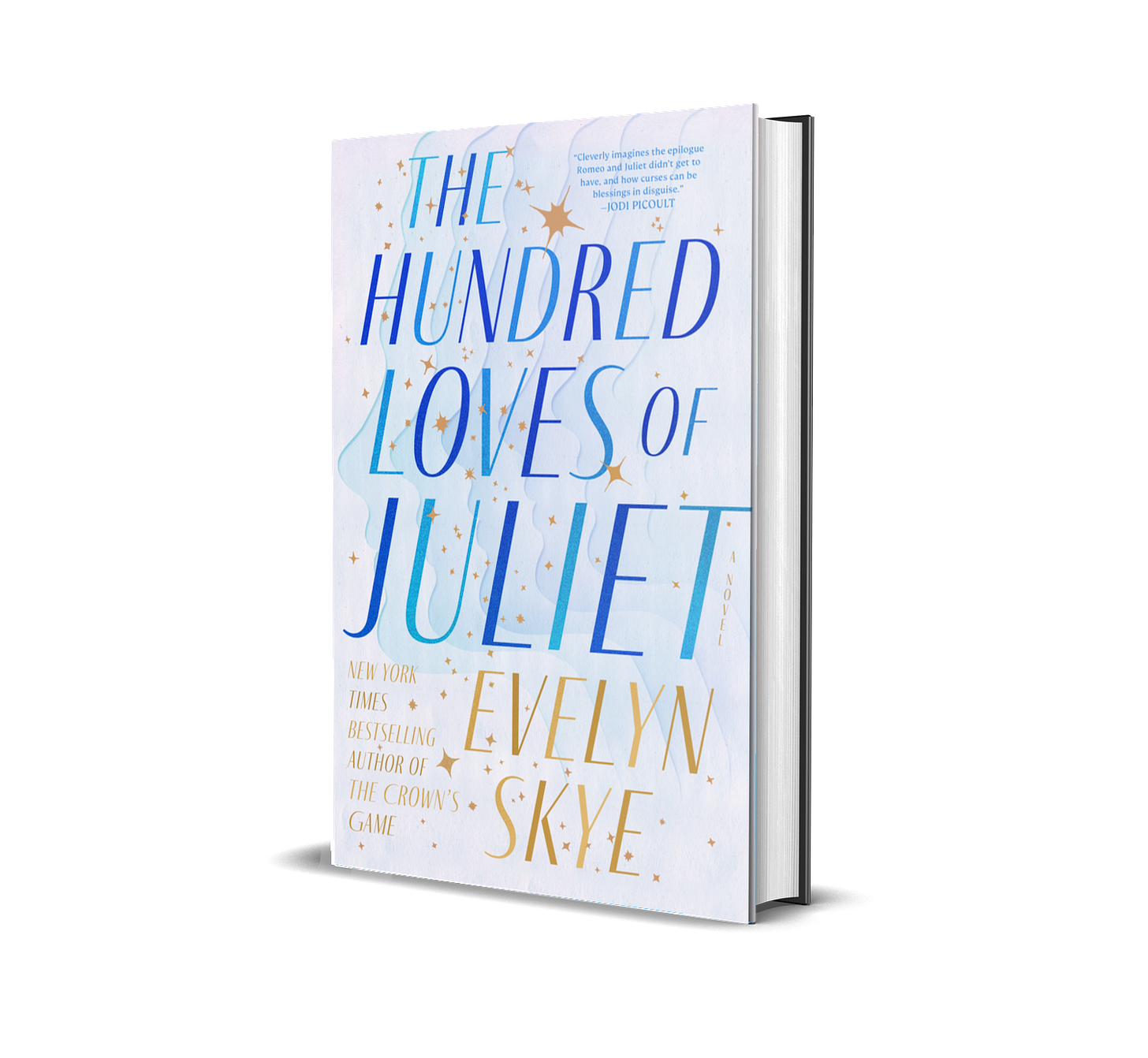5 Qs with My Favorite Authors: The Rollercoaster (and Victory) of Publishing
Dana Elmendorf's IN THE HOUR OF CROWS is set to be released on June 4th
Hello, lovelies!
I realized that after being in the publishing community for over a decade (I’m counting the years before I had a book deal), I’ve gotten to know a lot of incredible authors. They’re not only talented writers, but amazing people, too.
So I want to introduce you to some of my friends with an interview series I’m calling “5 Questions with my Favorite Authors.” You may already know a few of these authors, but others will be new to you, and you might just find yourself with a new favorite writer to read!
5 Questions with My Favorite Writers: Dana Elmendorf
I’m thrilled to kick off my series of author interviews with one of my favorite writers, Dana Elmendorf. Dana and I met about a decade ago at a writing conference, back when we were still new writers dreaming of landing agents and getting published some day.
Since then, we’ve remained steadfast friends, as well as critique partners, often reading and giving feedback on each other’s manuscripts before anyone else (even our agents) have seen them.
She has previously published a YA novel, South of Sunshine. Now Dana is on the brink of launching her debut adult fiction, In the Hour of Crows, a gorgeously atmospheric story set in Appalachia, where mystery and old Southern magic shadow every corner.
Welcome, Dana!
Being an artist is not an easy career. Did you face doubts or other obstacles when you were getting started?
Here's a really sad thing to admit: I had always thought I was dumb. If you would have told younger me I was going to be a published author, I would have laughed in your face.
Writing was something only smart people did. In school I made B’s and C’s, but it was something I had to work really hard to maintain. I wasn’t a huge reader growing up, though I read lots of books when I was younger, but I wouldn’t have called myself a bookworm.
My eighth grade English teacher saw something in me that I didn’t and recommended I take honors English in ninth grade. About a month or two into my freshman year, my English honors teacher told me I wasn’t cut out for the class, and he recommended I downgrade to regular English. I was devastated. While the material was challenging, I had loved learning literature had depth. I had no idea books were written with themes! Great Expectations was one of the most amazing books I had ever read. I typically had to read each page a few times before I understood what it was saying, but I loved it.
But to make matters worse, regular English classes were full by then. So I was put in remedial English. It further reinforced the belief that I was dumb.
Doubt has been a close friend of mine through all these years of writing. Though I’ve done my best to banish it from my thoughts, it still lingers in the background of my mind. I think it’s natural to second guess yourself, to doubt you can do something.
It’s what you do in the face of doubt that matters. If you allow it to keep you from moving forward, you let it win. Just do the thing you want to do, despite the doubt. You’re going to do it wrong, and doubt is going to relish in this. It will remind you EVERY time you try to do something that you failed before. But do it again anyway. Then again. And again, until you succeed.
Then you’ll have “the proof in the pudding.” (I have no idea where that saying came from.) But essentially, you will have the evidence that proves you can do it. So now when doubt returns, you can tell it it’s wrong. And then keep doing the things you don’t think you can do. Will and determination are powerful tools, and you have everything you need inside of yourself to succeed.
How did you get into writing? Have you always been a creative person?
I’ve always been a creative person: craft projects, glass lampwork artist (using a torch to make glass beads), jewelry making, and so many other various mediums I’ve played with over the years (and still do.) But writing a book is something I would have never considered possible before 2008—though I did write angsty, confusing poetry in high school.
December 2008 I saw a movie…Twilight, and holy Moses I freaking LOVED it. Then I found out it was a book, four actually. And I devoured all four in two weeks. Prior to that, I had read ONE book in ten years. (The Da Vinci Code and it took a year to read because it was so dense.) I was a stay-at-home mom back then, so when I learned Stephenie Meyer was a stay-at-home mom, too, I thought maybe I could write a book. I had NO idea she had an English Lit degree, and I’m glad I didn’t, because I wouldn’t have tried to write.
In 2009, I proceeded to write a 113K, horrifically passive voice Twilight fan-fiction. I had ZERO idea how to write a book, but I’m really good at reverse-engineering things. So I outlined Twilight and created a story from that. I knew my manuscript was terrible, and I also knew I had no idea why it was terrible. But I wrote a book. I wrote a book! And if I did it once, then I could do it again, but next time I’d do it better. And that’s exactly what I did.
Three years and five manuscripts later (2012), I wrote my YA debut novel, South of Sunshine. It took another two years to get an agent and sell it, but it finally published in April 2016.
Those first four manuscripts, I taught myself how to write. Each time I focused on learning a new skill: active vs passive voice, how to plot, how to write with “voice,” etc. During those early years, I navigated my way through the publishing world, learning how the business worked, networking with people, and continuing to hone on my craft. Here I am, fifteen years later, in a career 2008 Dana had never considered and 2012 Dana had barely started to dream of.
(interview continues below)
What has been your biggest challenge as a writer? And how did you get through it?
In my December newsletter, I wrote about how I advanced my writing skills. I think that is one of the most challenging aspects I have faced as a writer so far. A lot of authors go through a stagnant phase in their career. While the writing and type of stories they typically wrote were once successful, they no longer appeal to the market. To me that’s a sign an author needs to reinvent themselves and level up their game. That’s exactly what I had to do.
You can read my last newsletter for the details, but essentially I had to admit good writing wasn’t always good enough to get published. Mediocre writing, even if it’s just one scene, isn’t going to cut it. You need a tough critique partner who will be brutally honest about your work. You have to dig deeper to find the words/story/concept that seems impossible to write and write it anyway.
I also hired a writer’s coach; it was a game changer in my career. Hard as it was, I have learned so much from the experience and changes I’ve made, about myself as a writer and my writing.
Is there a book or author you find particularly inspiring?
I pretty much love almost everything Sarah Addison Allen writes, but I think for me it’s a variety of books that inspires me and my writing. Typically it’s atmospheric stories with lyrical writing and a unique concept. A rich Southern setting helps, too.
Some books I particularly love: The Ten Thousand Doors of January, Where the Crawdads Sing, Other Birds, The Girls in the Stilt House, We Begin at the End, Saving CeeCee Honeycutt, Starless Sea, The Secret Life of Bees, Bone Gap, and so many other wonderful reads.
There’s nothing better than discovering a really great book. A story that hooks you from page one and doesn’t let go, and has you racing to get to the end. In the fifteen books I read a year, I’m lucky to find two or three that I absolutely fall in love with. But when I do, it’s magic.
(interview continues below)
In the Hour of Crows is set to be released on June 4th. I've already heard a lot of industry buzz around it, including whispers that it'll be the "Big Book of the Summer." Can you tell readers what it's about and why you wrote it?
In the Hour of Crows is a story set in the Appalachia South about a woman who is a Death Talker, she can talk the death out of the dying. She uses her gift to help solve the murder of her cousin. It’s an atmospheric story with magical realism, a strong voice and a lyrical writing style. If you loved Where the Crawdads Sing or Practical Magic, then you’ll love this book.
The story is a culmination of several ideas that were floating around in my head. Years ago I read Raven Boys by Maggie Stiefvater. While the story was great, I was disappointed there were no boys who were sometimes ravens. I’m also a huge Edgar Allen Poe fan, The Tell Tale Heart my favorite, but The Raven is a close second. When I first started drafting this book, I played around with the idea that there was a boy who was cursed by a witch and turned into a crow. The only way to free himself was to get a girl to fall in love with him and then steal her soul.
As I researched magic spells and witches, I stumbled upon Appalachian folk magic and fell in love with EVERY aspect of it. Probably because it resonated so much with my own Southern history.
Then I discovered an Appalachian folk healer called a Fire Talker. It’s a real type of healer in the Appalachia that can talk the fire out of a burn by using secret bible verses. If they share the secret, they lose the gift. They can only give the gift to the opposite sex. And if they die with the gift, it’s gone forever. My brain lit up with an idea: What if there was such a thing as a Death Talker? In the Hour of Crows was born.
How to Get a Free Copy of Dana’s Book
Right now, Goodreads is giving away 10 early editions (a.k.a. ARCs/galleys) of In the Hour of Crows:
To hear more about Dana’s inspiring author journey (the ups as well as the downs, and how she pulled herself out of the valleys of a writing career):
» subscribe to Dana’s newsletter
Reading: What’s on my Nightstand
Right now, I’m reading Book 1 of the Bridgerton series in Spanish. Or, I’m attempting to. I’ve been studying Spanish for almost three years, but there are some Regency-era words that are not in my contemporary vocabulary, haha. Still, it’s a lot of fun to read a book first in English and then try it in Spanish.
Get your copy of my latest novel!
“Cleverly imagines the epilogue Romeo and Juliet didn’t get to have, and how curses can be blessings in disguise.”—JODI PICOULT
Book and Movie Release Calendar: 2024
March 5th - Damsel movie tie-in paperback edition
March 8th - Damsel movie releases on Netflix
May 7th - The Hundred Loves of Juliet summer paperback edition
July 30th - One Year Ago in Spain - NEW RELEASE


